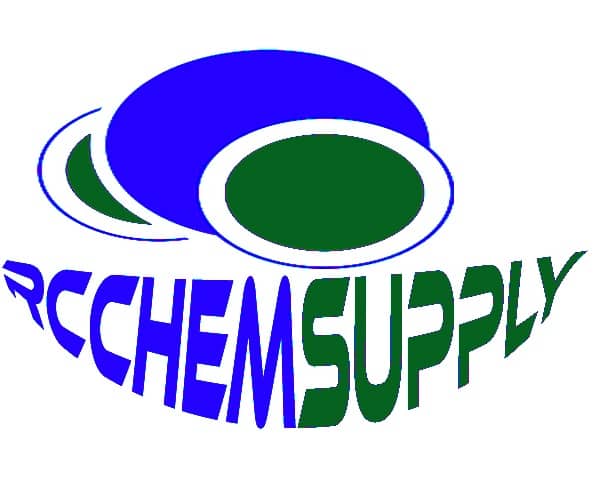Forensic Research Chemicals: Unlocking Truth with Precision
In the intricate world of forensic science, forensic research chemicals serve as indispensable tools. These compounds empower scientists to decode mysteries hidden in trace evidence, biological fluids, and illicit substances. Whether it’s identifying a synthetic opioid in a seized package or lifting fingerprints from a crime scene, these chemicals are at the heart of modern investigative techniques. This article delves into the core applications, key players, and emerging trends shaping forensic chemistry research, while spotlighting essential chemicals used in forensic science and their real-world impact.
What Is Forensic Research?
Forensic research is the scientific backbone of criminal investigations. It involves analysing physical evidence, ranging from DNA samples to chemical residues, to reconstruct events and link suspects to crimes. Unlike traditional lab work, forensic analysis must meet rigorous legal standards, ensuring results hold up in court.
A prime example is luminol, a chemical that reacts with haemoglobin to reveal invisible blood traces. Its use in forensic investigations has become iconic, enabling investigators to detect evidence long after a crime scene has been cleaned.
The Role of Forensic Chemistry Research
Forensic chemistry research plays a pivotal role in solving complex cases involving unknown substances. From drug identification to explosive residue analysis, forensic chemists rely on advanced methodologies like mass spectrometry and gas chromatography to deliver precise results.
For instance, a 2023 study published in Forensic Science International highlighted how researchers are now using AI-driven algorithms to predict the behaviour of synthetic cannabinoids—a growing challenge in toxicology labs. This innovation underscores how forensic chemistry research topics continue to evolve, pushing the boundaries of what’s possible in crime-solving.
Key Chemicals Used in Forensic Science
The field relies heavily on specific forensic science chemicals tailored for precision and reliability. Below is a table summarising some of the most critical compounds and their uses:
| Chemical | Application | Key Benefit |
|---|---|---|
| Luminol | Blood detection | Reveals aged or cleaned blood traces |
| Cyanoacrylate | Fingerprint lifting | Non-destructive, works on smooth surfaces |
| Silver Nitrate | Latent print development | Cost-effective, easy to apply |
| Ethyl Cyanoacrylate | Enhancing fingerprint contrast | Speeds up processing in humid conditions |
Each compound serves a unique function, making them vital assets in forensic workflows.
Leading Forensic Chemistry Companies
As demand for accurate forensic analysis grows, so does the need for high-quality reagents and equipment. Several companies have emerged as leaders in supplying forensic chemicals:
- RC Chem Supply – Offering a curated selection of research chemicals such as buy flualprazolam online and buy flunitrazepam for sale online, ideal for controlled studies.
- Sigma-Aldrich – Known for its extensive catalogue of forensic-grade solvents and analytical reagents.
- Thermo Fisher Scientific – Provides cutting-edge instrumentation and kits designed specifically for forensic laboratories.
These suppliers ensure that forensic teams worldwide have access to reliable materials, enhancing accuracy and efficiency in investigations.
Emerging Trends in Forensic Chemistry Research
Modern forensic labs are embracing cutting-edge technologies to improve detection capabilities and streamline processes. Notable advancements include:
- Nanoparticle-Based Detection: Gold nanoparticles are being used to enhance the sensitivity of drug screening kits, allowing for earlier and more accurate identification of synthetic opioids.
- AI Integration: Machine learning models now assist in predicting chemical behaviours, accelerating case resolutions.
- Environmental Forensics: Researchers are applying forensic methods to track pollutants and illegal dumping, aiding environmental litigation.
These developments reflect a broader trend toward interdisciplinary collaboration, blending chemistry, data science, and law enforcement to solve increasingly complex cases.
Why Trust RC Chem Supply for Forensic Research Chemicals?
For professionals seeking top-tier forensic research chemicals, RC Chem Supply stands out as a trusted source. Their commitment to purity, compliance, and customer support ensures researchers receive materials suitable for rigorous testing. Whether you’re analysing synthetic cannabinoids or developing new detection protocols, their inventory, including buy euk-134 online and buy ebk crystal online, caters to niche needs without compromising safety.
Frequently Asked Questions (FAQs)
1. What are forensic research chemicals used for?
They assist in identifying substances, preserving evidence, and conducting toxicology tests. Examples include luminol for blood detection and ethyl cyanoacrylate for fingerprint enhancement.
2. How do forensic scientists choose chemicals for analysis?
Selection depends on the type of evidence (e.g., biological fluids, explosives) and required sensitivity. High-purity reagents from trusted vendors like RC Chem Supply are non-negotiable.
3. Are forensic chemicals regulated?
Yes. Many require licenses due to potential misuse. Always source from compliant suppliers, such as those offering to buy mephedrone online under strict guidelines.
4. Can forensic research chemicals be used in other fields?
Absolutely! Techniques developed for forensics often extend into pharmaceuticals, environmental monitoring, and even archaeological analysis.
5. How are new forensic chemicals tested for efficacy?
Rigorous peer-reviewed studies and real-world trials validate performance. Journals like the Journal of Forensic Sciences regularly publish findings on emerging compounds.
Final Thoughts: The Future of Forensic Chemistry
The synergy between forensic research chemicals and technological innovation is redefining how we approach justice. From synthetic opioids to AI-driven analytics, the field thrives on adaptability. As global demand for precision increases, companies like RC Chem Supply remain vital partners, supplying the tools that turn mysteries into solved cases.
Key Takeaways
- Forensic research chemicals are essential in modern crime labs.
- Trusted suppliers like RC Chem Supply ensure quality and regulatory compliance.
- Emerging trends like AI and nanotechnology are reshaping the industry.
Ready to elevate your forensic research? Explore RC Chem Supply’s catalogue today—where science meets certainty.


